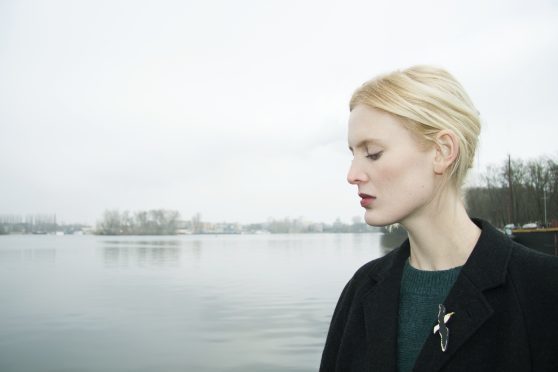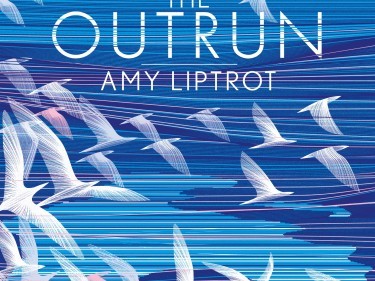Orkney is a place of great beauty and isolation and as a remarkable new memoir reveals, a place which helped one young woman with her battle with alcoholism. Author Amy Liptrot shares her story of a life filled with highs and lows with Susan Welsh
It’s three days since the festive season officially came to a close and many of us are glad to say goodbye to, what can seem at times, an endless cycle of days spent partying too hard and drinking too much.
But for years, non-stop drinking and partying was the norm for Amy Liptrot from Orkney. Every day was one to swig alcohol, but soon one drink became one too many, and 100 not enough.
Now a successful writer and recovering alcoholic, it was Orkney, the place which shaped her childhood, which helped put her on the road to recovery as she reveals in her memoir, The Outrun, which hits the bookshelves next week and has already been selected for BBC R4 Book of the Week.
Her start in life could not have been more dramatic as the opening lines of the book reveals:
“Under whirring helicopter blades, a young woman holds her newborn baby as she is pushed in a wheelchair along the runway of the island airport to meet a man in a straitjacket being pushed in a wheelchair from the other direction. That day, the two 28-year-olds had been treated at the small hospital nearby. The woman was helped to deliver her first child. The man, shouting and out of control, was restrained and sedated.”
Amy’s mother was an extremely religious born-again Christian mum. As Amy was entering the world, her father was being removed from her world after her birth sparked a bipolar episode which led him to being sectioned under the Mental Health Act. Before being whisked away to a hospital in Aberdeen, his tiny baby daughter was placed on his lap for just a few seconds.
The Outrun is her moving account of a childhood growing up on an Orkney farm and her later dependency – and recovery – from alcohol. Despite being born there and living in Orkney until she was 18, she says at times she felt like something of an outsider. Her parents were both English and she spoke with an English accent. Then there was the issue of living with a deeply religious mother and a bipolar father who was repeatedly sectioned and removed from the island.
Family life was rocked by waves of extreme highs and lows. As well as numerous incidents relating to her dad’s health, there were months when he stayed in bed without saying a word. One incident she recalls is when aged 11, she watched him smash all the farmhouse windows one by one. As police and medical staff arrived to help him, she yelled at them to go away while crouching beside him in the corner of her bedroom.
“I wasn’t really aware that ours was not the average household as when you are a child you have nothing to compare your own experience to, although sometimes at school I did tell people what was happening and became aware that this wasn’t perhaps normal,” said Amy who is currently living in East London. “Despite these events, I was very well looked after and grew up in a very loving household.”
Like most youngsters, she experimented with drink at teenage parties and local dances. “There was quite a strong teenage drinking culture in the 90s, particularly at country dances,” said Amy, 34.
But she soon became the girl who sneaked away with a half-bottle of vodka to drink on her own and often ended up in a horrible state, with her parents having to be called to collect her.
MAGIC MUSHROOMS
“I wanted to experience things and no discipline was going to stop me. With teenage friends in Orkney I swallowed dried magic mushrooms we picked from the fields and walked around the harbour town through the graveyard.”
At 18, desperate to leave Orkney, she headed for the bright lights of London. At that point her level of drinking was similar to many a student but she craved bigger highs and was soon caught up in the party drugs and rave culture. Essays were finished with the help of bottles of wine. As people around her began to drink and party less, she drank more and partied alone.
“I’ve kept diaries my whole life and looking back at my diary from my first year at university I realise I’d written then that I thought my drinking was a bit of a problem,” said Amy. “Alcoholism is a kind of gradual trajectory, it’s just something that gets worse year after year. I knew it was getting bad when I got to the stage that I’d be willing to leave a group of friends in the pub so I could go home and drink at a faster rate than the rate they were drinking at. When you make decisions like that you know something is going wrong.”
Over time, Amy lost numerous jobs, had difficulty sustaining relationships and regularly had nowhere to stay as she ran wild in London. “Being drunk all the time meant I almost didn’t care about my own safety and on the streets of a big city that meant putting myself in danger and become a danger to others. There was the time when I drove recklessly while drunk and another time when I was attacked after getting into a stranger’s car.”
During one of her regular visits to Orkney, at a time just after her parents split up, she took a job as a cleaner in the oil terminal on Flotta. “I felt as if I had become a ghost, walking nameless corridors under buzzing lights carrying a mop. The world out there, down south, had forgotten about me,” she writes. After work she’d sit smoking at what had been the family kitchen table before downing a bottle of wine and driving five miles to the nearest shop to get another.
Back in London, her downward cycle continued until she finally sought help and gained a place in a residential rehab until she faced further exhausting challenges that tested her resolve. Some 73 days after having her last drink, she began to realise how lucky she was at being allowed the luxury of taking several months out from the real world to sort herself out.
“I’d quit my job to go into rehab and when I came out I thought I’d go back to Orkney for a short time. It wasn’t my intention to go there to recover, that was accidental. But after a short time I went through a process of rediscovery of the place where I grew up and discovered the island was holding on to me,” said Amy who constantly sipped Coke and smoked as we spoke.
Her days were spent swimming in the cold early morning sea, tracking Orkney’s wildlife – puffins nesting on sea stacks, arctic terns swooping close enough to feel their wings, building dykes and helping her dad on the farm, while nights were spent searching the dark skies for the merry dancers. In the book, she writes beautifully about the nature and wildlife of the island and slowly it played its part in her journey towards recovery from addition.
“That first year of turning sober was pretty tough. The real turning point came when I got a job working for the RSPB on the Corncrake Initiative.” The long-running conservation project saw her sign a contract for a summer in Orkney. “That job opened up a lot of areas of interest to me and really did become a turning point,” said Amy, whose story is both heartbreaking, inspirational and redemptive.
After a decade away from Orkney it was home which helped her recover. “When I was a student a friend gave me a small compass which I’d wear around my neck. It reminded me that north was home,” said Amy. “I’ve had to change my lifestyle and behaviour but the essence of me is still the same girl as I always was. Some of the parts of me that grew up on the farm, I lost to some extent, but I’ve now managed to reconnect with that. This book is about the way I found things to express my character and desires without alcohol or drugs.
“The message I’d like to get across to anyone in a similar position to the one I found myself in is that you can do it. It is possible to change your life, just allow the unexpected to happen.
“I had many repeated attempts to stop drinking over the years but it’s now been four and three quarter years for me and if I can do it, so can you.
“After two winters on Papay I built myself and my sobriety up enough to the extent that I can now go to pubs and parties for a limited time, and move away from Orkney. I lived in Berlin for a while doing everything from teaching to working in a tea factory, and now I’m in London. I might go back to Orkney in the future as I see it as my heartland.”
As for the couple who at this start of this story were having such a hard time: Her dad is doing fine and still running the family farm while her mum runs a B&B in Kirkwall. “They have been very generous letting me write about life and them and are very supportive,” said Amy.
The Outrun by Amy Liptrot is out now, published by Canongate. Amy will be touring Scotland from January 30th to February 5th. For more information visit bit.ly/outrun-events.

